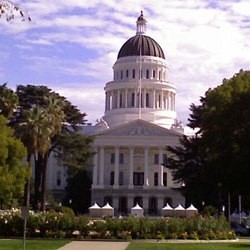Whole Californian Market Would Benefit From iPoker Regulation

Just prior to Black-Friday, the Californian iPoker market accounted for 16% of the country’s online poker revenues, as well as 4% of overall global revenues. Since the plug was pulled on the industry, however, legislation that would allow online poker to return to California has been endlessly debated, but thus far failed to gain any traction due to the disparate interest of the various gambling groups in the state.
While momentum has gained pace recently with the introduction of Assemblymen Adam Gray and Reginald Jones-Sawyer’s new iPoker bill, AB 2863, the fact remains that card rooms and tribal operators in California need to see the bigger picture as to how online poker could benefit the whole Californian poker market, and not just those operators who would be involved in the business.
Key Aspects of AB 2863
The Internet Poker Consumer Protection Act of 2016 (AB 2863) is an attempt to bring convergence between the various gaming interest groups in California. Amongst its key points is the allocation of up to $60 million into a General Fund for the horse racing industry, in return for being excluded from the iPoker market. As an extract from AB 2863 explains:
“The bill would continuously appropriate 95 percent of the funds in the account to the California Horse Racing Board for distribution, as specified, and would transfer five percent of those funds to the Fair and Exposition Fund, a continuously appropriated fund.”
In fact, just tribal casinos and card rooms would be permitted to run online poker sites, who could then form partnerships with major operators, such as PokerStars. Following regulation, any Californian found playing on unlicensed offshore sites could also face felony charges.
Root of the Problem
Card rooms and tribes that are opposing online poker legalization say publicly that they are concerned about aspects of the bill, such as concessions being made to horse racing operators and bad actor clauses. By making these claims, they indicate that they would support a bill with different language or a plan that has different features, but many industry insiders speculate that this is merely an excuse. These experts believe that card rooms and tribal operators are concerned that if online poker is legalized, they will be forced to invest in having sites of their own or lose their competitive edge.
Truth About the Effect of iPoker
While it’s easy to understand why card room operators and tribes may worry that legal online poker would hurt their business if they fail to jump at the chance to open their own sites, an actual look at data shows this isn’t the case. In actuality, online poker seems to help, not hurt, poker played at brick and mortar locations.
A Look at the Numbers
One can see a clear example of this when examining the number of poker rooms and tables in Nevada and overall poker revenue from 2002 to 2015. After online poker was made illegal in 2011, poker play in brick and mortar casinos sharply declined. The trend was also observed in California, where poker play in card rooms dropped 40 percent after the so-called Black Friday crackdown on online poker.
A Help, Not a Hindrance
It seems that online poker allows people to practice and build skills that they then feel confident testing out in card rooms. When you examine the data, it’s easy to conclude that the availability of online poker in California would benefit all card rooms and tribal operators.
Of course, the operators that do choose to apply for iPoker licenses will see the most financial benefits, but the entire industry should profit overall from the reinstatement of online poker. Operators who have online poker sites will also get more name recognition, so those who operate solely offline may need to step up their marketing efforts; however, with more people potentially looking to take to the “Real” tables after trying their luck at the virtual ones, there will be opportunities for card rooms and tribal casinos to attract new players.
Conclusion
Overall, it seems that panic over the potentially negative impact of online poker legislation is unwarranted. Tribes and card rooms only need examine the data to see that legalizing online poker can be beneficial for everyone, even those businesses who ultimately don’t set up poker sites.










